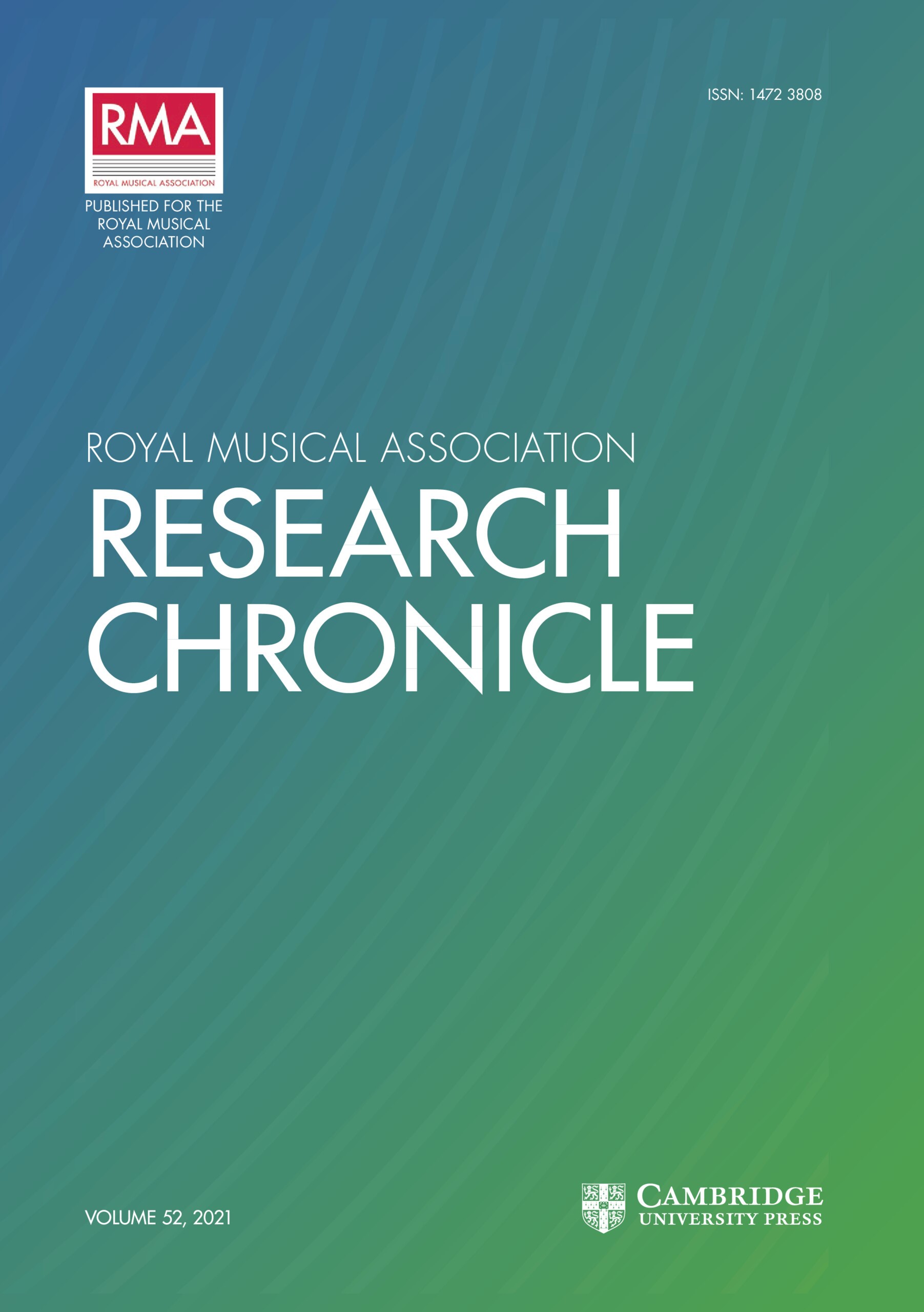No CrossRef data available.
Article contents
Library of Congress: Early American Sheet Music
Published online by Cambridge University Press: 01 January 2019
Abstract
Early American Sheet Music is a digital sheet-music collection curated and published by The Library of Congress. This beautiful resource provides open access to a specific classification number, M1.A1, by providing high-quality images and an easy-to-use visual browsing interface. It showcases early print sheet music and copied manuscripts from the United States and the colonies through 1820. However, the manner in which this digital collection has been curated highlights the changing roles and responsibilities of the library from custodian to custodian and publisher. While digital collections are enabling researchers across the world to see the resource, the curation tailors the online collection, thus invoking limitations on researchers. Further questions centre on issues of copyright. While the collection is free to use for personal research and education purposes, what persists is a constant confusion when it comes to downloading and performing early music found in digital collections. Performing such collections may be unique to music, but it is a serious issue that requires clarification. Using the new Early American Sheet Music resource as a centre for discussion, this article interrogates the current issues of digital music collections.
- Type
- Reviews
- Information
- Copyright
- Copyright © 2018 The Royal Musical Association
References
1 See Early American Sheet Music Collection (online), https://www.loc.gov/collections/early-american-sheet-music/about-this-collection/.
2 ‘About this Collection’, Early American Sheet Music (online), https://www.loc.gov/collections/early-american-sheet-music/about-this-collection/.
3 All of the digital collections within the ‘Music Division’ branch have a clear USA/American colony focus, with whole sections dedicated to the song ‘Amazing Grace’, ‘Aaron Copland Collection’, ‘Baseball Sheet Music’ and even ‘Dolly Parton and the Roots of Country Music’. In this respect, the digital collections are hugely diverse but linked by one consistent theme.
4 Laura Deal, ‘Visualizing Digital Collections’, Technical Services Quarterly, 32 (2015), 15.
5 Music for the Nation (online), https://www.loc.gov/collections/american-sheet-music-1820-to-1860/about-this-collection/.
6 See The Library of Congress, ‘About American Memory’, The Library of Congress, [online] https://memory.loc.gov/ammem/about/index.html
7 Walt Crawford, Being Analog: Creating Tomorrow's Libraries (Chicago, 1999), 160.
8 Crawford, Being Analog, 160–1.
9 See National Research Council, Preparing the Workforce for Digital Curation (Washington, DC, 2015). https://doi.org/10.17226/18590.
10 Tim Wu, ‘What Ever Happened to Google Books?’, The New Yorker (2015) (online) https://www.newyorker.com/business/currency/what-ever-happened-to-google-books. Eric Stromberg and Romeen Sheth, ‘Google Books: Liberating the World's Information, or Appropriating It?’, Business Ethics (2011) (online), https://kenan.ethics.duke.edu/wp-content/uploads/2012/08/GoogleBooksCase20151.pdf.
11 Rebeca Peacock and Jill Wurm, eds., The New Academic Librarian: Essays on Changing Roles and Responsibilities (North Carolina, 2014), 137.
12 This sentiment is repeated by many of the contributors to The New Academic Librarian including Theresa McDevitt, 52; Susan E Montgomery, 63; and Linda Galloway, 159.
13 Deal, ‘Visualizing Digital Collections’, 19.
14 See Giandomenico Sica, Open Access: Open Problems (Milan, 2006) for an in-depth discussion on the issues with open access and the strains it is placing on academics and institutions.
15 Andrew D. Asher and Lynda M. Duke, College Libraries and Student Culture: What We Now Know (Chicago, 2012), 72.
16 Patricia Puckett Sasser, ‘Sounds of Silence: Investigating Institutional Knowledge of the Use and Users of Online Music Collections’, Music Reference Services Quarterly, 12 (2009), 93–108 (98).
17 Derek Scott, The Singing Bourgeois (Oxford, 2001), 45.
18 See Sound Heritage (online), https://sound-heritage.soton.ac.uk/.
19 John Y. Cole, ‘Of Copyright, Men, and a National Library’, Quarterly Journal of the Library of Congress, 28 (1971), 4–5 and Gillian B. Anderson, ‘Putting the Experience of the World at the Nation's Command: Music at the Library of Congress, 1800–1917’, Journal of the American Musicological Society, 42 (California, 1989), 110.
20 Maurice Rickards, The Encyclopaedia of Ephemera: A Guide to the Fragmentary Documents of Everyday Life for the Collector, Curator, and Historian (New York, 2000), 295.
21 There are several composite music collections held in national libraries including The National Library of Scotland, The British Library, The Library of Congress among others. Many have personal inscriptions on the frontispiece or the inside of the front binding board. For examples see Sydney Living Museums, The Dowling songbook (online), https://archive.org/details/DowlingSongbook41008.
22 Reginald Spofforth, The Wood Robin for the Piano Forte Adapted for the Improvement of Juvenile Performers (1811, monographic. published by J. Paff,, between 1811 and 1817, 1811). Retrieved from the Library of Congress, <https://www.loc.gov/item/2015562453/>.
23 It should also be noted that the selective nature of these digitizations is to advertise the extent of the physical collection, attracting a larger body of people to come and see the physical collection. See Samantha Thompson, ‘Why Don't Archivists Digitize Everything?’, Archives@PAMA A blog about Peel's historical records by staff at the Region of Peel Archives (2017) (online) https://peelarchivesblog.com/2017/05/31/why-dont-archivists-digitize-everything/.
24 Arts and Humanities Research Council, Research Funding Guide, 4.1 (2018), 10 (online) www.ahrc.ac.uk/documents/guides/research-funding-guide/.
25 See Aaron D. Purcell, Digital Library Programs for Libraries and Archives: Developing, Managing, and Sustaining Unique Digital Collections (Chicago, 2016).
26 The Library of Congress, ‘Rights and Access’ (online) https://www.loc.gov/collections/early-american-sheet-music/about-this-collection/rights-and-access/.
27 For an in-depth discussion on the issues with copyright and music see Andreas Rahmatian, ed., Concepts of Music and Copyright: How Music Perceives Itself and How Copyright Perceives Music (Cheltenham, 2015).


